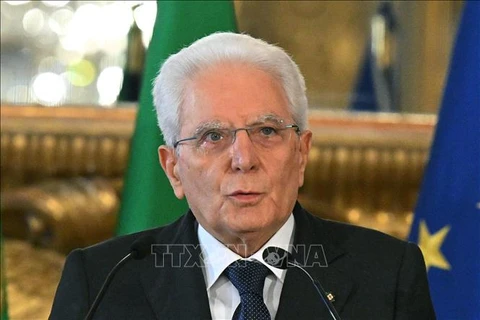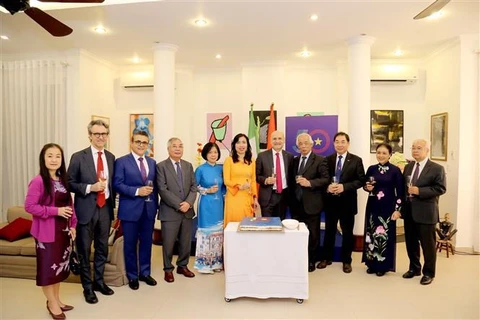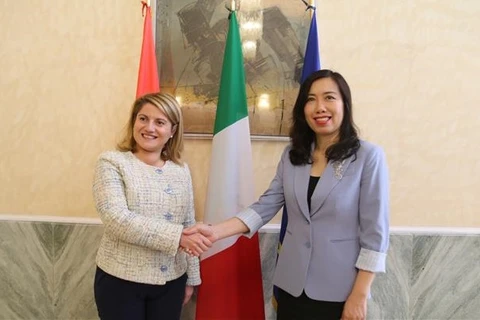 Mayor of Castelplanio city Fabio Badiali speaks at the opening ceremony of the Carlo Urbani Museum. (Photo: VNA)
Mayor of Castelplanio city Fabio Badiali speaks at the opening ceremony of the Carlo Urbani Museum. (Photo: VNA) Rome (VNA) – Carlo Urbani Museum, which is named after an Italian doctor who identified severe acute respiratory syndrome (SARS) in Vietnam in 2003 and then died of the disease, was officially opened on April 1 in his hometown of Castelplanio, Italy’s Ancona province.
Speaking at the opening ceremony, Tedros Adhanom Ghebreyesus, director general of the World Health Organization (WHO), called Carlo Urbani a hero of the world and a symbol for the world fight against diseases.
His contributions to preventive medicine and vaccination, as well as treatment in under-developed countries, are still valid today, Ghebreyesus said.
On this occasion, Ghebreyesus presented the museum with a commemorative board which was once located at WHO headquarters in Geneva.
Nguyen Thai Hoc from the Vietnamese embassy in Rome emphasised that the event once again pays tribute to doctor Carlo Urbani, honoring his great valuable contributions to world health in general and his dedication to the cause of protecting people’s health in particular.
Hoc said as a WHO infectious disease expert in Vietnam, Calos Urbani helped Vietnam analyze and identify the viral agent that caused the SARS.
“Through isolation and intensive care, he found a way to defeat SARS in a short time. His life is a testament to the deep friendship between Italy and Vietnam,” he said.
In 2022, the Italian Government gave the late doctor the Knight of the Order of Merit to honor his great contributions to the detection, identification and rapid response of new diseases./.
























